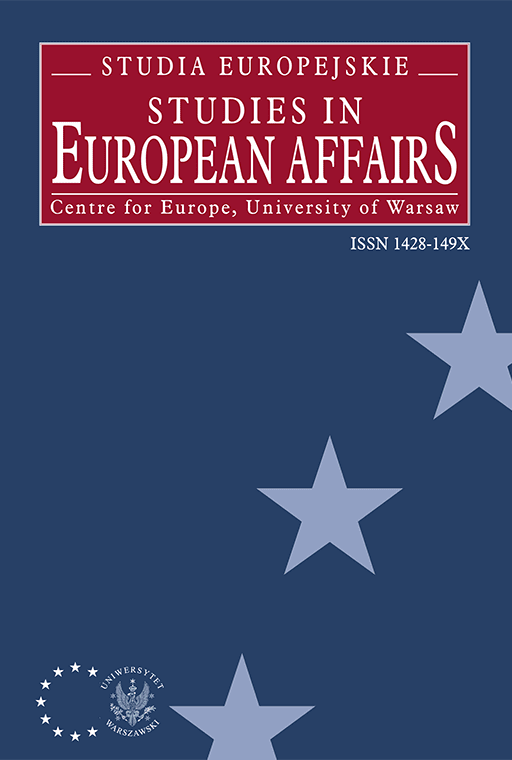
ISSUE: 1/2013
- Volume 65
- Number 1
- 2013
Subscribe NEWSLETTER
Studia Europejskie –
Studies in European Affairs
ISSN: 1428-149X
e-ISSN: 2719-3780
License
Articles published in the journal are under a Creative Commons Attribution – Non Commercial – No Derivatives 4.0 International License
Skutki hadlowe ewolucji prawa swobodnego przepływu towarów. Bilans dwudziestolecia istnienia rynku wewnętrznego UE
Trade effects of the evolution of EU law on the free movement of goods. Consequences of the 20 years of the European Union internal market
Abstract
The internal market of the European Union was established twenty years ago – on 1 January 1993. One of the key elements of the internal market is the free movement of goods. The basic provisions concerning free trade between the Member States were introduced by the Treaty establishing the European Economic Community. After the elimination of customs duties and quotas and the creation of the customs union in 1968, some remaining barriers had to be removed to implement free movement of goods within the internal market of the EU. One of them – customs and police control at border points was eliminated on the day of establishment of the internal market of the EU. Although reduction of that obstacle was treated as a fundamental step towards an integrated European market, it is worth noting that contrary to what had been expected earlier, it had no substantial impact on the intraCommunity trade. This was caused by the fact that parallel to the elimination of customs control, new rules concerning VAT and yield taxes had to be implemented not only by public authorities, but mainly by entrepreneurs, what made the movement of goods much harder for them in a short-time perspective. Thanks to the application of new approach to technical harmonization and more flexible provisions concerning the trade between the Member States, the volume of trade within the internal market gradually increased. According to the research, the three enlargements of the EU in 1995, 2004 and 2007 had a substantial impact on the value of intra-Community trade and its relations to the extra-Community trade, the GDP and the position in the world. It seems that the internal market of the EU is much more important to EU entrepreneurs and the common regulations applied in all Member States created a proper, safe and friendly environment for them. However, there is a negative phenomenon concerning the lowering of the share of the intraCommunity trade in the global world trade. This can be the result of running out of potential of the free movement of goods in the EU market. On the one hand, the detailed legislation concerning the free movement of goods led to the achievement of a high level of integration of common requirements to trade, but on the other hand, it reduced the interest of EU companies to sell within the EU due to an overregulated market.
Language: Polish
Pages: 75-100
How to Cite:
Harvard
Ambroziak, A. (2013) "Skutki hadlowe ewolucji prawa swobodnego przepływu towarów. Bilans dwudziestolecia istnienia rynku wewnętrznego UE". Studia Europejskie – Studies in European Affairs, 1/2013, pp. 75-100.